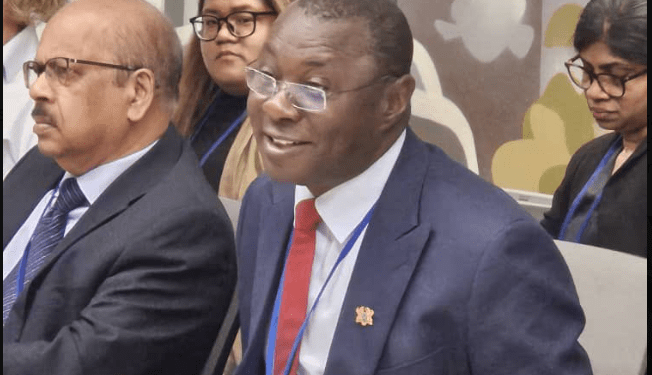Ghana’s Finance Minister, Dr Mohammed Amin Adams has warned countries facing energy crises not to rush in procuring excess generation capacity than required.
According to him, this is likely to lead to additional costs for countries. Dr. Adam’s speaking as part of a panel discussion on the sidelines of the Spring Meetings of the World Bank and IMF in Washington DC.
The discussion was on the theme: Energizing Africa: what will it take to accelerate access and improve lives.
The Minister said Ghana had so far made significant progress at ensuring universal access to electricity through deliberate policy.
He said the government is determined to achieve the 90 percent threshold by the end of the year.
“You have to be deliberate about energy access and so right from the early 1990s, we were very intentional, the government decided that Ghana must achieve universal access to electricity and so we put in the relevant policies, the national electrification scheme, rural electrification programme and the self-help electrification programme through which communities and the government share the cost of electricity access. and so to them, it has paid off, we have achieved over 88.85% access.
The rest that we have not extended electricity to are usually ungrid communities, and island communities and we are trying to achieve that through mini-grids and other smaller systems that will extend electricity to all of them so we can achieve universal access.. By the standard of the industry, universal access is about 90 percent and we are determined to achieve this by end of this year.
What you should not do is that in the past we procured energy through unsolicited projects, now we see that the costs are coming down and therefore we can acquire more capacity at lower cost through competitive procurement and therefore for renewables for example, we have moved to competitive prceurem so we can lower cost
So we should avoid the practice of procuring energy through unsolicited projects because that turns to be very expensive. It is also important that when you are in crisis you do not acquire as many generation capacities as you will not need because the tendency for investors to come knocking on your door, justifying why you should acquire more because you have a crisis is very high and at the end of it you acquire capacity at very high-cost which you will have to contend with for the rest of the life span of those contracts. Let’s avoid this and also let us be intentional and plan for the long term on how we procure capacity but also how we build the infrastructure for the transmission to ensure that every part of the country gets access to electricity.”


